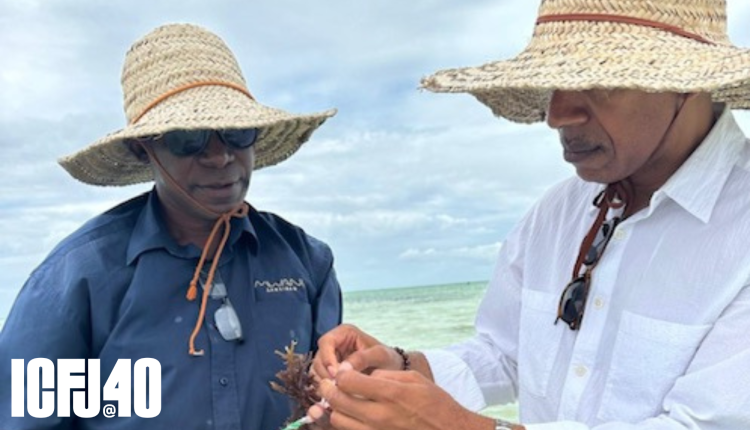LaMont Jones is the managing editor for education at U.S. News and World Report.
Through an ICFJ study tour, he deepened his knowledge of the Middle East, connected with colleagues and published articles.
Originally from Cincinnati, Ohio, Jones is based in Washington, DC.
This interview has been edited slightly.

How have you been involved with ICFJ over the years?
I became involved with ICFJ in summer 2024, when a journalist colleague told me about the 2024 Jordan study group and suggested I apply. I had traveled with that colleague as part of larger groups over the last decade, doing journalism about African-diaspora issues in France, Cuba and Zanzibar. I applied for the program and was delighted to be accepted and to participate in October 2024.
What was the biggest outcome from participating in the program?
There were at least two big outcomes. The first was a greater understanding and appreciation of the sociopolitical culture that journalists and other media professionals in Jordan – and the Middle East writ large – navigate as they practice their craft. The other big outcomes, thus far, are an interview with a prominent Jordanian archaeologist that was published in December, and a slideshow featuring the top 15 global universities in Arab-speaking countries.
Why is it so important right now to provide the kind of support to journalists that ICFJ does, especially in the U.S.?
It’s about broadening the lens of journalists by giving us opportunities to gain a fuller sense of the spectrum of experiences that inform how news is gathered and presented across various cultures and societies. ICFJ provides those opportunities in ways that are accessible to journalists for whom finances may be a barrier.
The news industry as a whole benefits: More well-rounded journalists mean a better industry, a better product, and a better-informed public. This is critical at a time when the U.S. press, as a constitutional institution, is at a historic low in terms of credibility and respectability.
What’s one piece of advice you’d give to an aspiring journalist?
Check your biases, think critically, and report the best obtainable version of the truth you can find – even and perhaps especially when you don’t like it.
Is there anything you would like to add?
Thank you, ICFJ, for what you do.